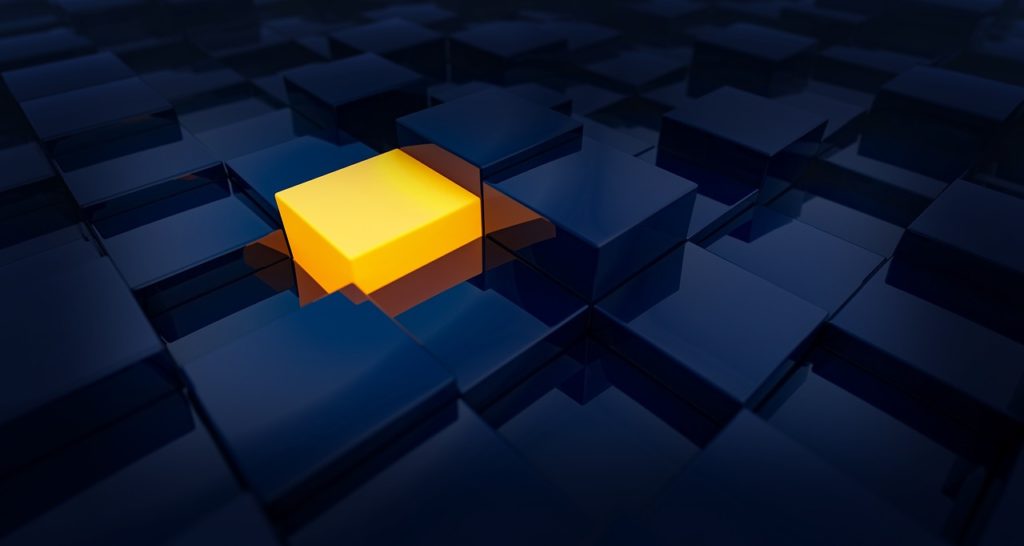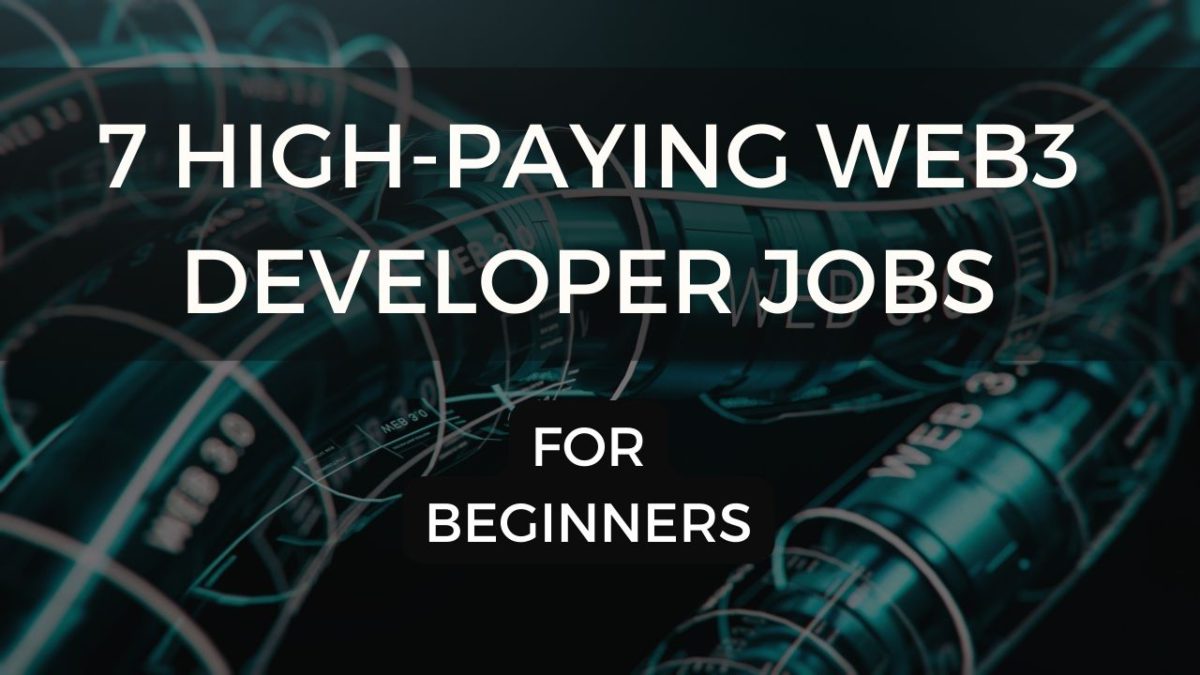Blockchain Developer Roadmap for Non Technical People
This article serves as a guide for anyone interested in becoming a blockchain developer, especially those who may not have a technical background. We will break down the key concepts of blockchain technology, the tools needed for development, and the skills required to succeed in this exciting field. Whether you are curious about how blockchain works or want to embark on a career as a developer, this roadmap will provide you with the essential information you need.
Key Takeaways
- Blockchain is a special type of database that stores information in a secure and transparent way.
- There are many tools and platforms available for blockchain development, so it’s important to choose the right ones for your needs.
- Learning programming languages like Solidity and JavaScript is essential for creating blockchain applications.
- Smart contracts are self-executing agreements that run on the blockchain, and they require careful design to ensure security.
- Blockchain technology has real-world uses in areas like finance and supply chain management, making it a valuable skill in today’s job market.
Understanding Blockchain Basics
What is Blockchain Technology?
Alright, so let’s talk about blockchain. It’s like this super cool digital ledger that keeps track of stuff across a bunch of computers. Imagine a notebook that’s shared among your friends, and each time someone writes in it, everyone else gets the update too. That’s pretty much what blockchain does, but in a way that’s super secure and hard to mess with. It’s the backbone of things like Bitcoin and other cryptocurrencies.
Key Features of Blockchain
So, what’s the big deal about blockchain? Here are some key features:
- Decentralized: No single person or group controls it. It’s spread across many computers.
- Immutable: Once something’s recorded, it’s there for good. You can’t just go back and change it.
- Transparent: Everyone can see the transactions, making it super clear and open.
Blockchain is like having a digital witness that sees everything and never forgets.
How Blockchain Differs from Traditional Databases
Now, you might wonder how blockchain is different from regular databases. Well, traditional databases are usually managed by a central authority, like a company or a person. But blockchain? It’s like a community effort where everyone gets a say. Also, while databases can be changed, blockchain records are set in stone once they’re made. It’s like writing with a permanent marker instead of a pencil. So, it’s a whole new way of thinking about storing and sharing information.
Exploring Blockchain Development Tools
Popular Blockchain Platforms
So, you wanna get into blockchain development? First thing you gotta know is the platforms. Ethereum is like the big boss of blockchain platforms. Everyone talks about it. But hey, don’t sleep on others like Hyperledger Fabric and Binance Smart Chain. They’re pretty solid too. Each one has its own vibe, so you might wanna explore a bit and see what clicks with you.
Essential Development Tools
Alright, now let’s talk tools. You’re gonna need some handy ones to make your life easier. Here’s a quick list:
- Truffle Suite: It’s like a Swiss Army knife for blockchain devs. Helps with testing and deploying.
- Ganache: Use this to spin up a personal blockchain for testing.
- Remix IDE: A browser-based tool that’s great for writing smart contracts.
These tools are pretty much your best buddies when you’re coding away on blockchain projects.
Choosing the Right Tools for Your Project
Picking the right tools can feel like choosing between a rock and a hard place. But don’t stress too much. Think about what your project needs. Is it a big enterprise thing or a small personal project? That’ll help you decide. Also, consider the community support and how often the tool gets updates. More updates usually mean it’s still alive and kicking.
Remember, tools can make or break your project, so choose wisely. It’s all about finding the right fit for what you’re trying to build.
Learning Blockchain Programming Languages
Introduction to Solidity
So, you’re diving into the world of blockchain, huh? Well, Solidity is like the go-to language if you’re working with Ethereum. It’s kinda like JavaScript, but for smart contracts. You write these contracts to run on the blockchain. Solidity lets you create these rules and agreements that nobody can mess with once they’re set. It’s a bit tricky at first, but once you get the hang of it, you’ll be writing smart contracts like a pro.
Getting Started with JavaScript for Blockchain
JavaScript isn’t just for making websites look cool. In blockchain, it’s super handy for building stuff like decentralized apps. You can use JavaScript to interact with smart contracts and make web pages talk to the blockchain. Here’s a quick list of what you might do:
- Set up a development environment with Node.js.
- Use libraries like Web3.js to connect to Ethereum.
- Test your apps using frameworks like Truffle.
Exploring Other Blockchain Languages
Okay, so Solidity and JavaScript are big, but they’re not the only players in town. There are other languages you might bump into:
- Vyper: Another one for Ethereum, but it’s more about security and simplicity.
- Rust: Used in networks like Solana, known for being fast.
- Go: The language behind Hyperledger Fabric, good for private blockchains.
Blockchain programming isn’t just about knowing one language. It’s about picking the right tool for the job, depending on what you’re building and where you’re building it. Whether it’s making secure contracts or speedy transactions, there’s a language out there that fits the bill.
Diving into Smart Contracts
What are Smart Contracts?
Alright, so smart contracts are like digital agreements that live on the blockchain. Think of them as vending machines. You put in the right input, and you get the expected output without needing a middleman. Smart contracts automatically execute actions based on pre-set rules. They’re super reliable but remember, they’re only as good as the code they’re written in.
How to Develop Smart Contracts
Getting into smart contracts is like learning to cook. You start simple, maybe with some Solidity, the popular language for Ethereum smart contracts. Here’s a quick way to start:
- Get a basic understanding of blockchain and Ethereum.
- Learn Solidity or another language for smart contracts.
- Use development tools like Remix or Truffle to write and test your contracts.
Smart Contract Security Best Practices
Security is a big deal here. You don’t want any bugs messing things up. Here are some tips:
- Always test your contracts thoroughly.
- Keep your code simple to avoid mistakes.
- Regularly update your contracts to fix any vulnerabilities.
Smart contracts are powerful, but with great power comes great responsibility. Always double-check your work to keep things secure and running smoothly.
Navigating Blockchain Networks
Public vs Private Blockchains
Alright, so when it comes to blockchains, there are two main types: public and private. Public blockchains are like the open world of the internet. Anyone can join, see what’s happening, and even contribute if they want. Think of it like a public park where everyone can hang out. On the flip side, private blockchains are more like exclusive clubs. Only a few people get access, and they have to be invited. This setup is great for companies that want to keep things hush-hush.
Understanding Consensus Mechanisms
Consensus mechanisms are the secret sauce that keeps blockchains running smoothly. It’s like getting everyone in a group to agree on one thing. There are a few different ways to do this:
- Proof of Work (PoW): Miners solve puzzles to add new blocks. It’s like a race to solve a Rubik’s cube.
- Proof of Stake (PoS): Instead of puzzles, validators are chosen based on how much crypto they hold. It’s like a lottery.
- Delegated Proof of Stake (DPoS): People vote for delegates to validate transactions. It’s a bit like a democracy.
Exploring Blockchain Nodes
Nodes are like the backbone of any blockchain network. They store data, share it with others, and keep everything in check. There are different types of nodes:
- Full Nodes: These guys have the entire history of the blockchain. They’re like the librarians of the network.
- Light Nodes: They only keep some data and rely on full nodes for the rest. They’re more like casual readers.
- Mining Nodes: These are the ones that do the heavy lifting, like adding new blocks to the chain.
Blockchain networks can seem a bit complicated at first, but once you break it down, it’s just a mix of different pieces working together. It’s like a big puzzle, and each piece has its own job to do. Understanding these basics can make diving into the blockchain world a lot less overwhelming.
Exploring Real-World Blockchain Applications
Alright, so let’s talk about how blockchain is shaking things up in finance. Blockchain tech is like a game-changer in this space. It’s making things faster, safer, and a whole lot more transparent. Think about how it cuts out the middleman in transactions. That’s a big deal. No more waiting around for days for a bank transfer. With blockchain, it’s almost instant. Plus, it’s got this cool feature where once a transaction is recorded, it’s there for good. No tampering. This means less fraud and more trust.
- Faster Transactions: Gone are the days of long waits. Blockchain speeds things up big time.
- Reduced Fraud: Transactions are locked in, making it super hard for any funny business.
- More Transparency: Everyone can see what’s going down, which builds trust.
Imagine a world where sending money is as easy as sending an email. That’s the power of blockchain in finance.
Building a Career as a Blockchain Developer
Skills Required for Blockchain Development
To get started as a blockchain developer, you gotta know a few key things. First, understanding blockchain basics is a must. You can’t skip that. Then, you gotta dive into programming languages like Solidity or JavaScript. These skills are your bread and butter in blockchain development. Also, knowing how to work with smart contracts is super important. They’re the backbone of blockchain applications.
Networking and Community Involvement
Being part of a community can really help you grow. It’s where you learn from others and share your own ideas. Join forums, attend meetups, or even contribute to open-source projects. It’s a great way to get noticed and maybe even find some job opportunities. Plus, you get to meet cool people who are into the same stuff you are.
Continuous Learning and Certification
In blockchain, things change fast. You gotta keep up with the latest trends and tech. Consider getting certifications to boost your skills and show employers you know your stuff. Some popular ones include Certified Blockchain Developer or Ethereum Developer Certification. Keep learning and you’ll stay ahead of the game.
Staying updated in blockchain tech is like trying to keep up with the latest phone models—there’s always something new coming out. Keep learning, and you’ll always have the skills you need.
Conclusion
In summary, becoming a blockchain developer may seem tough, especially for those without a tech background. However, with the right steps and a willingness to learn, anyone can start this exciting journey. Remember, it’s all about understanding the basics first, then gradually moving on to more complex topics. Don’t rush; take your time to explore and practice. The world of blockchain is growing fast, and there are many opportunities waiting for you. So, dive in, stay curious, and enjoy the learning process!
Frequently Asked Questions
What is blockchain technology?
Blockchain technology is a way to store information in a secure and trustworthy manner. It works like a digital ledger that records transactions across many computers so that the records cannot be changed easily.
How does blockchain differ from regular databases?
Unlike regular databases where one person can control the data, blockchain is shared among many users. This makes it harder for anyone to cheat or change the information without others knowing.
What programming languages should I learn for blockchain development?
Some popular programming languages for blockchain are Solidity, which is used for Ethereum, and JavaScript, which is great for building web applications that connect to blockchains.
What are smart contracts?
Smart contracts are like automated agreements that run on the blockchain. They automatically execute actions when certain conditions are met, which helps to make transactions faster and safer.
What are public and private blockchains?
Public blockchains are open for anyone to join and see, while private blockchains are restricted and only certain people can access them. This makes private blockchains more secure for businesses.
How can I start a career in blockchain development?
To start a career in blockchain development, you should learn the necessary skills, get involved in the blockchain community, and keep learning through courses and certifications.
Stay informed with daily updates from Blockchain Magazine on Google News. Click here to follow us and mark as favorite: [Blockchain Magazine on Google News].
Get Blockchain Insights In Inbox
Stay ahead of the curve with expert analysis and market updates.
latest from tech
Disclaimer: Any post shared by a third-party agency are sponsored and Blockchain Magazine has no views on any such posts. The views and opinions expressed in this post are those of the clients and do not necessarily reflect the official policy or position of Blockchain Magazine. The information provided in this post is for informational purposes only and should not be considered as financial, investment, or professional advice. Blockchain Magazine does not endorse or promote any specific products, services, or companies mentioned in this posts. Readers are encouraged to conduct their own research and consult with a qualified professional before making any financial decisions. The featured image used is just a creative depiction of the title and it does not intend to hurt sentiments of any person or institution. If it hurts anyone sentiments, please do not hesitate to reach out to Blockchain Magazine.

 Bitcoin
Bitcoin  Ethereum
Ethereum  XRP
XRP  Tether
Tether  Solana
Solana  Dogecoin
Dogecoin  USDC
USDC  Cardano
Cardano  Lido Staked Ether
Lido Staked Ether  TRON
TRON  Chainlink
Chainlink  Avalanche
Avalanche  Wrapped stETH
Wrapped stETH  Stellar
Stellar  Wrapped Bitcoin
Wrapped Bitcoin  Sui
Sui  Hedera
Hedera  Toncoin
Toncoin  Shiba Inu
Shiba Inu  WETH
WETH  Polkadot
Polkadot  Parkcoin
Parkcoin  LEO Token
LEO Token  Litecoin
Litecoin  Bitget Token
Bitget Token  Bitcoin Cash
Bitcoin Cash  Uniswap
Uniswap  Official Trump
Official Trump  Hyperliquid
Hyperliquid  Wrapped eETH
Wrapped eETH  Pepe
Pepe  USDS
USDS  NEAR Protocol
NEAR Protocol  Ethena USDe
Ethena USDe  Aave
Aave  Aptos
Aptos  Internet Computer
Internet Computer  Ondo
Ondo  WhiteBIT Coin
WhiteBIT Coin  Ethereum Classic
Ethereum Classic  POL (ex-MATIC)
POL (ex-MATIC)  Monero
Monero  Algorand
Algorand  Cronos
Cronos  OKB
OKB  Mantle
Mantle  Dai
Dai  Render
Render 




